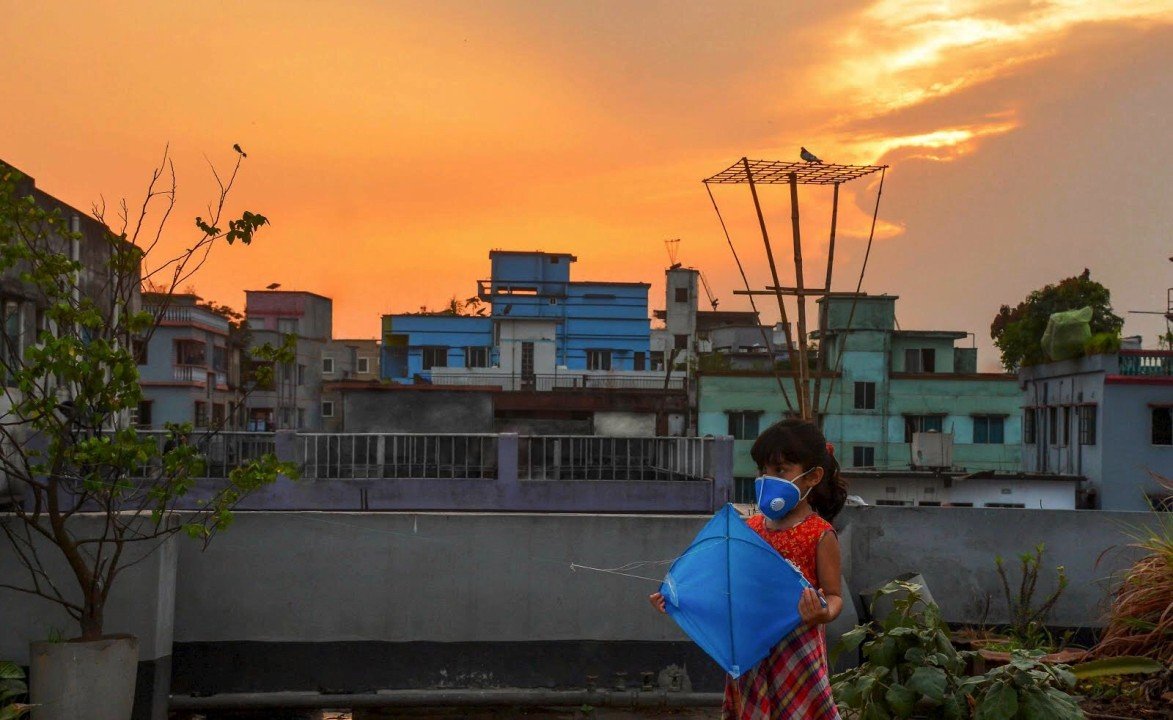
By Mohammed Asaf-Ud-Doulah; Student, American International University – Bangladesh; Open-Troop Member, Bangladesh Red Crescent Society (BDRCS).
It’s now more than four months since the coronavirus started from Wuhan in China. it’s not stopped but some countries are beginning to see a decline in new infections. Though the curve is still not flattened in Bangladesh, still the government is slowly easing lockdown restrictions. The government is trying to strike a balance between protecting lives and preserving jobs. Small shops and restaurants along with all the government and private sectors are reopening. Domestic flights and train services are increasing the frequency after the instructions of wearing masks and maintaining social distance came out. But the students are not returning to class as schools and colleges remain closed. Probably this situation will end soon but I don’t think it would be that easy for us to overcome.
COVID-19 is not going away anytime soon. It’s going to be painful and bumpy. It is just feeling like a huge natural experiment unfolding in real-time. This is a disease of globalization as it spreads through the channels that we have created and this is a disease that does not respect nationality class or ethnic grouping. Moving back to the old way of operating which will cause cataclysmic consequences for the economy and all social classes within it. There will be a difference between this crisis and the Global Financial Crisis 2008. The crisis we are about to undergo is going to be more profound as it’s going to be deeper. 2008 was a kind of crisis in the financial sector and the banking sector that then gradually had an impact on people primarily through the way the government had to respond and things like austerity. This crisis will hit the ordinary people of Bangladesh first and foremost and it will far more profound and painful than 2008.
Currently, Bangladesh’s economy is facing a significant recession. We are likely to see a recession that is not only deep but kind of long. This could be a transfer made formative event concerning industrial capitalism. The impact will be much more profound and games the backdrop where these local economies are already struggling. The sector that is going to be most affected is the retail hospitality leisure. It’s not an equal opportunity and the poor are being devastated at a rate that is staggering compare to wealthier parts of society.
There will be a dramatic change in people’s behavior in Bangladesh and indeed worldwide. An estimated half of the population of the world had been in lockdown. In this situation the first question that pops in everyone’s mind that what extent will those behavior injure. Behavior and Health Research Unit experts say that about 40 percent of our behavior in any day is routine or habitual so it occurs at around the same time the same place. And it’s also estimated that a person acquires a new habit or routine in about six weeks. So, there is a high possibility that some of the behaviors we are now engaged in will stick within us. People have managed to change their behavior in the context of this immediate threat. As we know that handwashing and proper cleaning of the home have gone up significantly in terms of cleaning products. What we have learned in walking outside and to avoid strangers like the plague. We don’t know how long it will take for us to not be jumpy every time somebody is coming around the corner whether we will go back to shaking hands with people.
Big cities like Dhaka and Chittagong will get less crowded and will slow down their pace. Rapid migration from rural to urban areas, like what we have seen in Bangladesh, cannot continue at the same speed. Cities will lose the past of their public and social life. There will be less eating out but more home deliveries. Salons and parlors will be in demand for quite some time unless good practices of social distancing are properly maintained. The way we work in cities will also change. Working from home will be an option, supported by video conferencing mainly in private sectors.
Pandemics and climate page are not unconnected. The pandemic arising from Deforestation and a wildlife trade that crosses species boundaries and air travel will help the virus to spread. Our profligate devastation of the environment around us of our planet has numerous profound effects on the relationships between humans and animals’ species. It’s a similar story of Ebola. There is a pattern and it’s not by chance. There are lots of downsides and a few opportunities in the current crisis. One of the opportunities is to recalibrate to prepare for climate change. Due to the rush of taking the economy back to a stable point, we might want to forget about climate change and I think it’s vital that we don’t.
One of the responses to the economic crisis unleashed by COVID-19 has been a huge policy of disinvestment in third-world countries like Bangladesh and that has caused enormous poverty. We see hunger and possibly mass starvation as possibly being a few consequences of all of this.
Millions have either lost their income or significant reduction in how much income they have coming into the family. We are currently in an unprecedented crisis and a shocking one in many ways that are forcing us to rethink. There are many of our assumptions and if we get to the other side of this it’s going to be very much painful as well as much difficult for us to overcome this current situation in order of establishing a better economy. If out of that comes a recognition that we have got to respond and repair for climate change than surely we will visualize light at the end of the darkness.
“To express this pandamic situation Shohan Khan captured a sublime photo, really greatfull that he gave me the permission for using it in my article”
